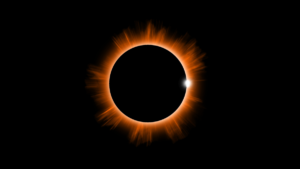A comprehensive eye exam for your child should be one of the items on your back-to-school list! An annual exam can help your child keep seeing clearly and help to diagnose any underlying health or learning issues. Keeping our kids’ bodies and vision in tip-top shape is important for not only their health, but also their academic success.
Children’s vision can frequently change throughout the year, so ensuring that they receive an annual eye exam will help them to see their best! If a child has other eye health concerns, more visits to your optometrist might be necessary. Did you know that optometrists can screen for over 270 diseases? It’s true that your eyes are the window to your health. During the comprehensive eye exam, your eye doctor will screen for any potential health issues.
It certainly is important for annual check-ups even when there are no significant symptoms, however, there are tell-tale signs that your child needs to see an eye doctor for corrective lenses and other vision correction.
Signs of eye and vision problems
- Complaints of discomfort and fatigue.
- Frequent eye rubbing or blinking.
- Short attention span.
- Avoiding reading and other close activities.
- Frequent headaches.
- Covering one eye.
- Tilting the head to one side.
- Holding reading materials close to the face.
- An eye turning in or out.
- Seeing double.
- Losing place when reading.
- Difficulty remembering what they read.¹
These symptoms can hinder the success your child could achieve in school and extracurricular activities due to lack of confidence or poor binocularity. Vision-related learning problems can lead to feelings of inadequacy compared to their peers which could result in them falling behind in their foundational knowledge. The good news is that your eye doctor can put a stop to these issues simply by correcting your child’s vision!²
You might be thinking, “my kid gets a vision test every year at school or at the pediatrician’s office”. This may be true; however, typically these are vision screenings and not complete examinations. Parents and educators should not rely solely on school or vision screenings. Just because a child has 20/20 vision, doesn’t mean that they couldn’t still have vision problems relating to eye focusing, eye tracking and eye coordination which can easily be diagnosed by an optometrist during a comprehensive eye exam. To ensure your child is seeing their absolute best, you can find an optometrist near you, here!
References:
- https://www.aoa.org/healthy-eyes/caring-for-your-eyes/back-to-school?sso=y&ct=74de599596b8f0625ecee7e73b9075748b40b67c7483063398c240812d9cc25103a8fe3cdf4730eaa60a156eb827cb7e3ce2c9ffd0bf6feed002d659bd886416#:~:text=Why%20back%2Dto%2Dschool%20eye,if%20recommended%20by%20an%20optometrist.https://iconeyecare.com/eye-care-blog/10-cataract-facts-cataract-awareness-month/
- https://evansandpiggotteyecare.com/four-ways-poor-vision-can-affect-learning-children/

Are Your Eyes Ready for the Upcoming Total Solar Eclipse?
A total solar eclipse¹ will cross the United States on April 4, 2024, passing over Texas, and traveling through Oklahoma, Arkansas, Missouri, Illinois, Kentucky, Indiana, Ohio,

The Time Has Come to Use Your Health Benefits!
Have you made good use of your health benefits this year? If not, consider using your Health Savings Accounts (HSA) or Flexible Spending Accounts (FSA)

Winter is Coming – So Are Dry Eyes
Brace yourselves, winter is coming and so are dry eyes! Winter weather conditions are one of the leading causes for dry eye symptoms. This is

Eye Safety and the Solar Eclipse
Did you know that there will be an annular solar eclipse happening on October 14, 2023? That’s right, and most of Colorado will be able

Time to Use Your Health Benefit Funds
The end of the year is fast approaching, and your health benefits are expiring! You might already be feeling anxiety for the upcoming holiday season,

Tips for Dry Eye Relief
Did you know that between 16 million and 49 million Americans have dry eyes? This is between 5-15% of the population!¹ Dry eye symptoms are